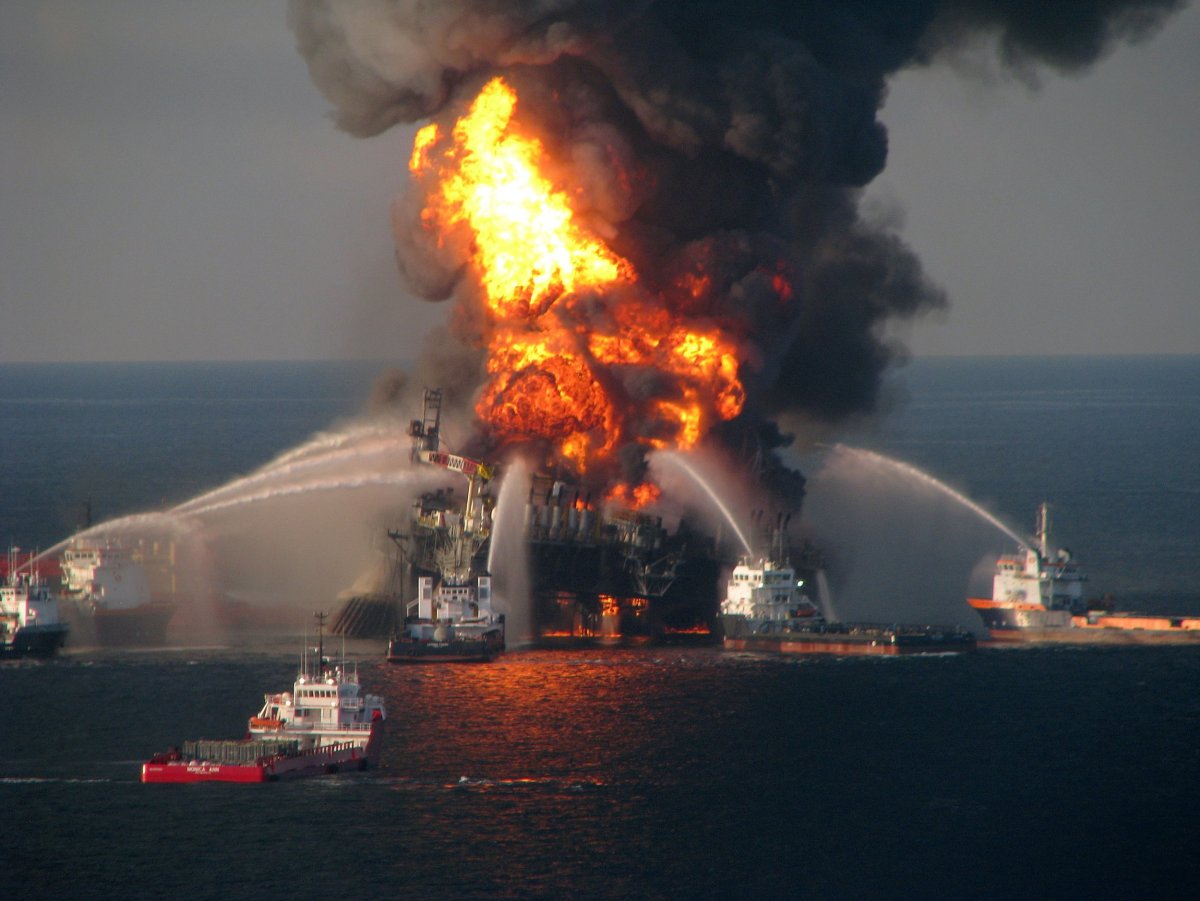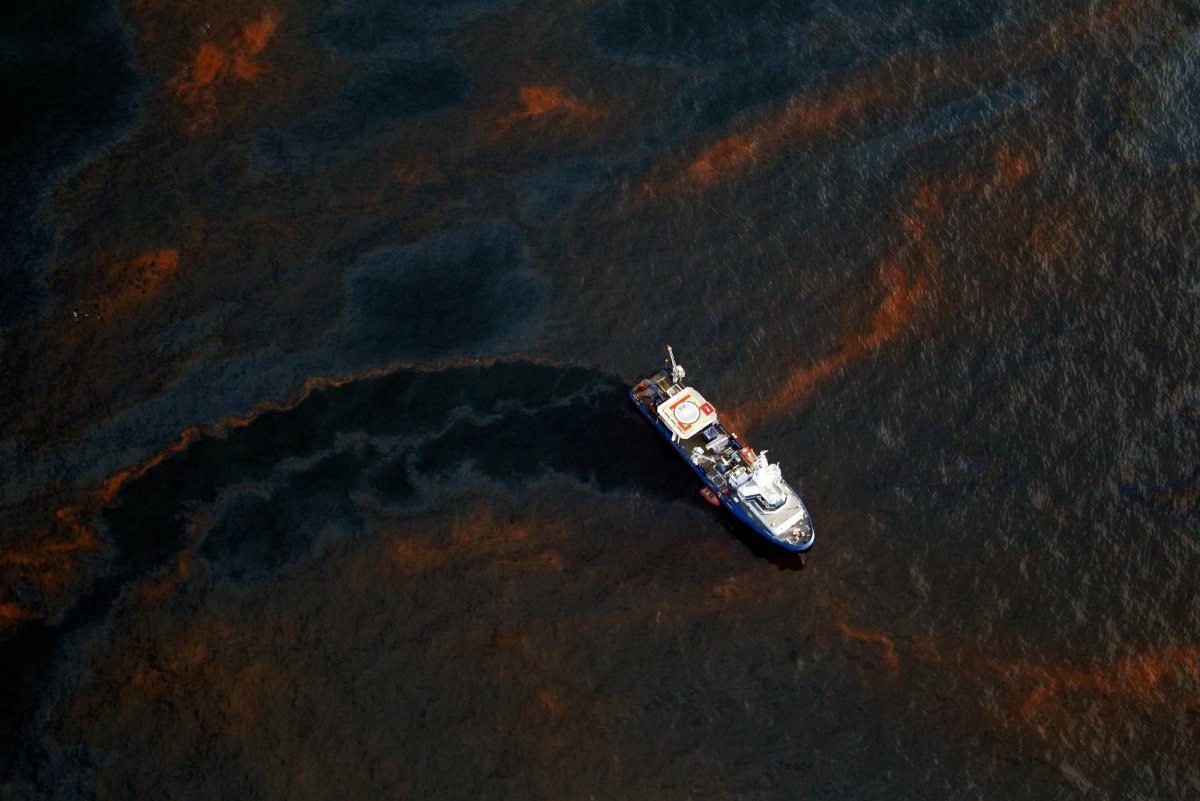Coast Guard workers exposed to chemicals used to clean up the Deepwater Horizon disaster suffered a series of illnesses and at a greater rate than those who were exposed to just the oil, a study has found.
Around 2000 responders who reported being exposed to dispersants used during the clean-up in the wake of the 2010 BP oil disaster reported a string of health issues, including lung irritation, nausea, vomiting, skin rashes and diarrhea.
According to research by the Uniformed Services University of the Health Sciences, Coast Guard members who came into contact with the oil dispersants suffered symptoms at a higher rate than those who were not exposed to the chemicals or exposed to just the oil.
"With increased levels of exposure there was a higher prevalence of reporting cough and shortness of breath, and more reporting of wheeze than non-exposed people," said Jennifer Rusiecki, a USU researcher involved in studies on the health impacts of Coast Guards members in the wake of the disaster.

Elsewhere, the study said those exposed to the dispersants were four times more likely to experience shortness of breath and three times more likely to report skin rashes than those who did not come into contact with the chemicals. They were also two times more likely to experience symptoms such as diarrhea and vomiting than their counterparts not exposed to the dispersants.
More than 4.9 million barrels of crude oil were spilled into the Gulf of Mexico following an explosion at the Deepwater Horizon drilling rig which also killed 11 workers on site.
As part of the immense clean-up operation, approximately 1.8 million gallons of oil dispersant was sprayed from the air to the sea surface, as well as injected directly into the stream of oil leaving the damaged wellhead nearly one mile beneath the surface.
The two types of chemical supplied by BP, Corexit 9500 and Corexit 9527, were used to reduce the interfacial tension between crude oil and water in order to make it easier to break down.
According to the New Orleans Times-Picayune, workers brought in to clean up the spill had expressed concerns about the use of the chemicals sprayed directly from the sky. Responders were also told by BP and Corexit's manufacturer, Nalco Environmental Solutions, that the chemicals were safe and that they wouldn't even need to wear protective gear.
"I can tell you Coast Guard members were terrified of the concept of dispersants," Rear Admiral Erica Schwartz, the Coast Guard's director of health and safety, said.

This not the first time a study has made a link between the chemicals used in the oil spill clean-up affected human health. A ground-breaking study by the National Institutes of Health, published in September 2017, examined around 31,000 people involved in the clean-up. The research found they also experienced similar symptoms after being exposed, such as coughing, shortness of breath, tightness in the chest, and burning in the nose, throat, or lung .
In its conclusion, the study said: "Our findings suggest associations between exposure to dispersants, specifically Corexit EC9527A or Corexit EC9500A, and adverse acute health effects at the time of the oil spill response and clean-up as well as with symptoms that were present at the time of study enrolment one to three years later. "
Schwartz said the latest USU study is "critical for our responders." He added: "Nearly 20 percent of our workforce responded to the disaster."
Newsweek has contacted BP for comment on the latest study.
Uncommon Knowledge
Newsweek is committed to challenging conventional wisdom and finding connections in the search for common ground.
Newsweek is committed to challenging conventional wisdom and finding connections in the search for common ground.
About the writer
Ewan Palmer is a Newsweek News Reporter based in London, U.K. His focus is reporting on US politics, domestic policy ... Read more
To read how Newsweek uses AI as a newsroom tool, Click here.








